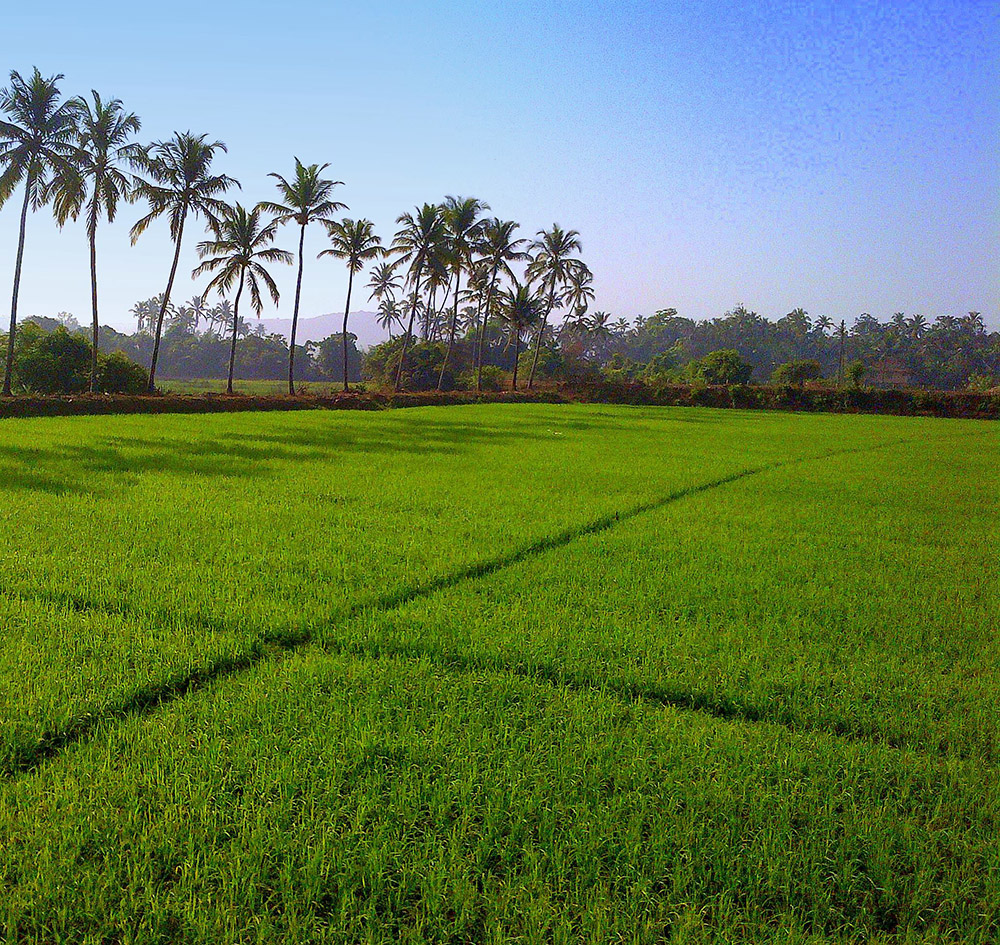All roads into our capital are blocked by peacefully protesting farmers (since November 26, 2020); peasants, who work the land, whose palms know the taste of dirt, whose eyes can read the skies and the winds, and who know the bugs, bees, and the beasts as their friendly-foes. These men, women, and children whose nature it is to negotiate the wild are grounded in a reality that is not only remote to most of us urbanites but one that has also been progressively undermined and trivialized by all those who have fully bought into modernity’s promise of bettering, even overcoming nature. I strongly suspect that the seeds of true-believing that the world is so greatly suffering from today, might lie in the make-belief Cartesian “truth” of mind-over-matter. Yes, I am calling categorical rationality “belief”, one that has to perforce be sustained by plain hubris and smart-talk. Perhaps the smart-Alec and the true-believer are essentially the same.
Historically, the traditional idealisms that have prevailed within our subcontinent over millennia have been content in dismissing matter as maya, calling it base, corrupt and inferior in comparison to the superiority of idea or doctrine. However, within the mind-over-matter dictum of modernity, both the idea and idealism have reached new heights, sprouted new feathers, and gained a currency, a cockiness, and a self-righteousness that makes it vie with heights hitherto only known to theology and spirituality. By valorising the idea of “self-perfectionism” modernity gives rise to a narrative of ever-betterment wherein competition, self-determination, and obliteration of all else considered “inferior” or “other” are raised to the level of high virtue.
Today, the social, cultural, and political realities worldwide constitute a variety of idealisms that are all spawned from modernity, namely capitalism, nationalism, consumerism, puritanism, communalism, fundamentalism and so on. today. And currently, the nexus between all these isms is coming into play in a manner that does not bode well for either freedom or democracy. While capitalism makes no bones about converting everything and anything into profit; consumerism keeps generating and feeding new compulsive appetites with clockwork precision, at the same time entitling the customer to feel like “God”; puritanism preaches moral and religious earnestness, recommitting the Believer to his “covenant” with God and making strife for perfection the goal of life; nationalism, from its very inception, floats chauvinistic ideas of self-greatness and imaginings of glorious pasts that did not historically transpire; and communal-fundamentalism fans these fantasies of lost glory, recommitting the subject to a hypothetical past, fuelling a supremacist zeal to reinstate the order of that imagined, illustrious past. Each of these idealisms relies heavily on narratives of loss, strife, entitlement and hope. Thus, a narrative spinning machinery is integral to the project of modernity, be it news, popular culture and/or advertisement.
Traditionally, we have known advertisers to buy space or time in all types of news media, often at exorbitant prices, in order to announce and promote their products. We are well accustomed to seeing news and advertisement juxtaposed side by side, but within clearly demarcated boundaries. Today, these boundaries are getting blurred as the agendas of the political news-makers and the advertisers are coming to tally with each other. Since the 19thcentury, news-media has played the role of a middle-man between the seller and the buyer. However, today, corporate-capitalism has breached the territory of the middleman and advanced to co-opt or colonise the media by now conveniently owning news-channels. The nature and gamut of their production has changed, alongside their products they also “make” news now. In other words, news is being produced. Like consumer products, these new business-channels produce news for which first both an atmosphere and an appetite must be created. A political appetite which eventually serves capitalist dreams. The new appetite that is being invented today is that of entitlement; and for this formula, selling of “happiness” alone will not do the trick; as it is, the happiness market is long saturated. Now what gets-the-goat are narratives of loss and nightmares of fear, anger, shock, resentment, and hatred. The new market makes blood-baying trendy for the sake of righting fabricated past-wrongs and aggressing to gain entitlement. This blatant collapse of distinctions between the agencies of news and advertisements is unprecedentedly dangerous; it takes make-belief and its corollary, true-believing, onto an altogether another level, hitherto unknown.
Each one of us today is both a product of and prey to the impact of advertisement that has succeeded in seducing and colonizing the psyches of virtually all populations around the globe. Each season, we glibly, one more time, buy into the new “dream of happiness” that the market is floating. A bite-size dream of self-betterment that compels my maid to cater to her daughter’s daily demand for Maggie noodles, because Maggie holds the promise of a Good Life! And try as I can, I cannot convince the mother or the daughter otherwise. Such is the impact of advertisement.
These dreams that you and I have been unconsciously buying into since childhood are designed to make us progressively feel both yet-incomplete and unsure of our own appetites, opinions and ourselves. But alongside peddling such unsurety of self, capitalism also must keep us hanging dangerously close to the possibility of actualising that what has suddenly become current, covetable and ideal. Keeping us in a perpetual state of tease! And in doing so it is habituating us with the “ideal”, literally bringing it into our bedrooms, making it feel commonplace enough for me to feel entitled to it, yet keeping it slightly out of reach. It is this vague desperation of unsurety mixed with the false familiarity and naïve promise of entitlement that keeps me buying into the idea of a good life in order to “belong” and be part of the “in-crowd”.


 Art work by Simarjeet Singh, using sliced firewood and rocks at SinghuMorcha
Art work by Simarjeet Singh, using sliced firewood and rocks at SinghuMorcha